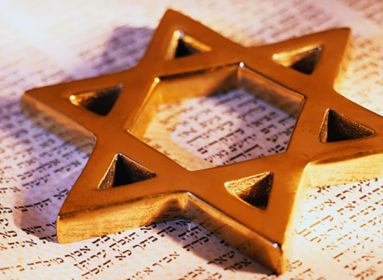By Shlomo Riskin
The details of the construction of the Sanctuary together with all of its furnishings and the garments of the Priest-Kohanim are painstakingly and exquisitely described when God issues the commandment (in the portions of Terumah and Tetzaveh) and again when the Israelites carry out this God given task (in the portion of Vayakhel Pekudei). If the construction of the Sanctuary merited such repetition, it must have been of supreme importance. Why?
Conventional wisdom would have it that if God created a world in which we may dwell, the least we can do is to return the compliment and create a Sanctuary in which the Divine Presence may dwell at least here on earth. The Yom Kippur drama for forgiveness would certainly suggest that that High Priest “meets” (as it were) the Divine in the Holy of Holies once a year on the fast day which the Hassidic world calls The Day of Holiness (Yom Hakadosh) just for that purpose.
However, the Biblical passage at the conclusion of the portion of Tetzave would imply otherwise: “I shall set my meeting there (at the entrance of the Tent of Meeting) with the Children of Israel, and it shall be sanctified with my glory. I shall sanctify the Tent of Meeting and the Altar; and I shall sanctify Aaron and his sons to minister to Me. I shall dwell among the children of Israel and I shall be their God, who took them out of the Land of Egypt in order that I may dwell in their midst; I am the Lord their God”. (Exodus 29: 43-46)
Note that here; God’s dwelling place is within the Jewish people – and not within the sanctuary. This is precisely what the introductory verse of the last five chapters of the Book of Exodus was telling us: “They shall make for Me a Sanctuary so that I may dwell in their midst”: (Exodus 25: 8) But what does this really mean? Can God enter a physical human being and reside within human physicality? Does God “incorporealize” within the Jewish nation? Is this not dangerously close to Christianity and a notion of God-in-man which Judaism considers heretical?
Let us go back to the great song at the time of the miraculous splitting of the Reed sea, the drowning of the Egyptians and the salvation of the Jews. The Hebrews then sang, “God had become for me salvation; this is my God ‘ve’anvehu’” (Exodus 15: 4)
The last word of this verse is difficult to translate, Targum renders it to mean “I shall make a house for Him” and since the Hebrew word naveh means a house; here the verse means, “This is my God and I shall build him a Sanctuary” – presumably in which He will dwell on earth (a notion which we have already rejected). Rashi (ad loc) maintains that the root word in ve’anvehu is ‘noy’ which means beautiful: “This is my God and I shall beautify Him with my melodic prayers”, or as others would rather have it – “I shall beautify Him by beautifying His commandments”; by wearing the most beautiful tallit and teffilin, by decorating His sukkah with the finest adornments.
A Talmudic sage ingeniously splits the difficult word in two, ‘ani vehu’ – He and I: “This is my God, and I shall do what He does, as it were: just as He feeds the hungry, so shall I, and just as He clothes the naked, so shall I”. Perhaps the one who interprets this best is Rabbi Samson Raphael Hirsch who renders the verse, “This is my God and I shall become His house; I shall attempt to express His will in every word I utter and every action I perform”.
Hence the Bible never means to teach that God assumes physical form, God forbid; the Bible is merely conveying that when a human being or a nation entire expresses the will of the Divine, that it is tantamount to having the Divine presence living amongst us, to having God truly in our midst.
A beloved mentor and friend, Reb Aharon Landau once told me of a hasid who purchased a magnificent kidush cup for his rebbe. Handing over the gift, he requested from his rebbe, “Pray that Elijah the prophet reveal himself to me at my seder this year”. The hasid lived in anxious expectation, but he had no revelation of Elijah at his seder.
When the disgruntled hasid complained, his rebbe gave him the following advice; “Next year, be sure to invite poor people to your home for the seder. Have special concentration when the door is opened for Elijah and you will surely experience him! Once again, the hasid followed the rabbi’s advice, certain that at the seder he would witness the great prophet. Alas, once again, he was again doomed to disappointment. This time, he confronted angrily confronted his rebbe, the rebbe took his hand, “But of course you experienced Elijah; when you invited ten paupers you become Elijah the Prophet”.
This is the point of the Biblical text. When we express God’s will with our every act and word, we becomes Godlike. God becomes manifest in the world through such individuals.
Rabbi Shlomo Riskin is chancellor of Ohr Torah Stone and chief rabbi of Efrat, Israel.







 Southern New England Jewish Ledger
Southern New England Jewish Ledger














